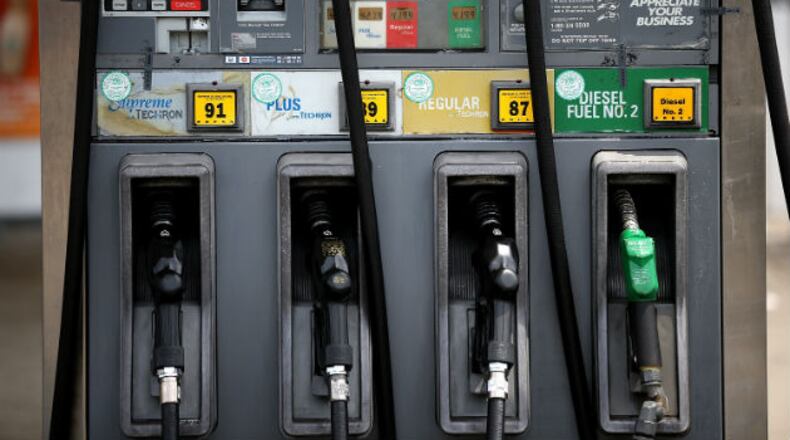Further details are expected to be released during a 9 a.m. meeting of the House Finance Committee.
The transportation budget bill is expected to specify how much of a gas tax is needed, describe how the money should be distributed and lay out how Ohio should spend the money over the next two years.
The bill must be signed into law by March 31.
Related: ODOT Director says Ohio must find money to fix roads or ‘more people will get hurt’
It could be a hard sell: Not only are motorists sensitive to gas price hikes, the legislature is packed with conservatives who are reluctant to raise taxes.
Should Ohio raise the gas tax? Plan expected tomorrow. https://t.co/COgkWlDS7P
— Ohio Politics (@Ohio_Politics) February 20, 2019
“I think we need to continue to research the issue, find out what resources are needed to support our infrastructure and consider different approaches to ensuring the resources are provided,” said state Rep. Jim Butler, R-Oakwood, a member of the House Finance Committee and the number two leader in the House GOP caucus. Butler and state Sen. Bill Coley, R-West Chester Twp, favor increasing the gas tax only for non-residents.
Related: Ohio mulls getting out-of-staters to pay for our roads
State Rep. Niraj Antani, R-Miamisburg, opposes increasing gas taxes or imposing fees on luxury vehicles.
Ohio’s gas tax lower than neighboring states
The state gas tax is currently 28 cents per gallon — an amount that hasn’t changed since 2005. It is below the state tax charged in all neighboring states, except Kentucky which has a 26-cent-per-gallon tax.
Tom Balzer, president of the Ohio Trucking Association, said that Kentucky makes up for its lower gas tax with higher registration fees based on the value of the vehicle.
The Ohio gas tax costs the average motorist $146.30 per year, assuming they drive 12,900 miles and get 24.7 miles per gallon, Balzer said. But nationally, motorists on average pay $516 in annual maintenance costs due to poor road conditions, he noted. In Ohio, such maintenance costs range from $397 in Dayton to $615 in Cleveland, he said.
Riverside Mayor Bill Flaute said the Mayors Association of Ohio strongly supports increasing the state gas tax to help local jurisdictions with road and bridge projects. Currently, 60 percent of the tax is allocated to the state while 40 percent goes to locals.
Making the case
The DeWine administration is making the case that the 28-cent gas tax has been eroded by inflation, Ohioans are driving more miles but using more fuel efficient vehicles so revenue is flat but wear and tear is increasing, and decisions to borrow for previous road projects has driven up the state’s debt service.
ODOT Director Jack Marchbanks has said Ohio has roughly a $1 billion shortfall for maintenance, safety upgrades and new projects. Each penny tax on a gallon of gas raises $66 million.
“For the most part, I think people go into this with an open mind and we’re looking forward to learning more about what the specific needs might be both over the next two years and over the next 10. And then figuring out what a long term strategy moving forward should be,” said Senate President Larry Obhof, R-Medina.
Meanwhile, Democrats Michael Skindell, D-Lakewood, and Terrence Upchurch, D-Collinwood, are pitching a plan to earmark $150 million a year in state and federal funds — $120 million for public transit and $30 million pedestrian and bike projects.
Skindell, a member of the House Finance Committee, declined to say how much of a gas tax hike he would support, saying he wants to see the details of DeWine’s proposal.
U.S. Sen. Rob Portman was in Dayton Wednesday and said he understands why the DeWine administration is looking at a gas tax increase, because there’s a gap in the state’s ability to build roads and bridges. Portman said there needs to be good infrastructure to support businesses.
He added that one aspect of the issue is the growing presence of fuel-efficient electric and hybrids vehicles – such as his hybrid truck – which lead to people paying less gas and gas taxes.
“We have to think about other sources of funding too,” Portman said.
Business reporter Kaitlin Schroeder contributed to this report.
About the Author

